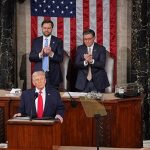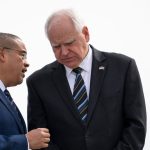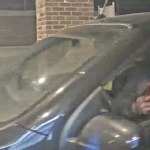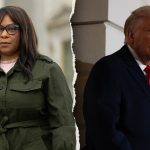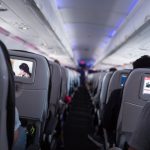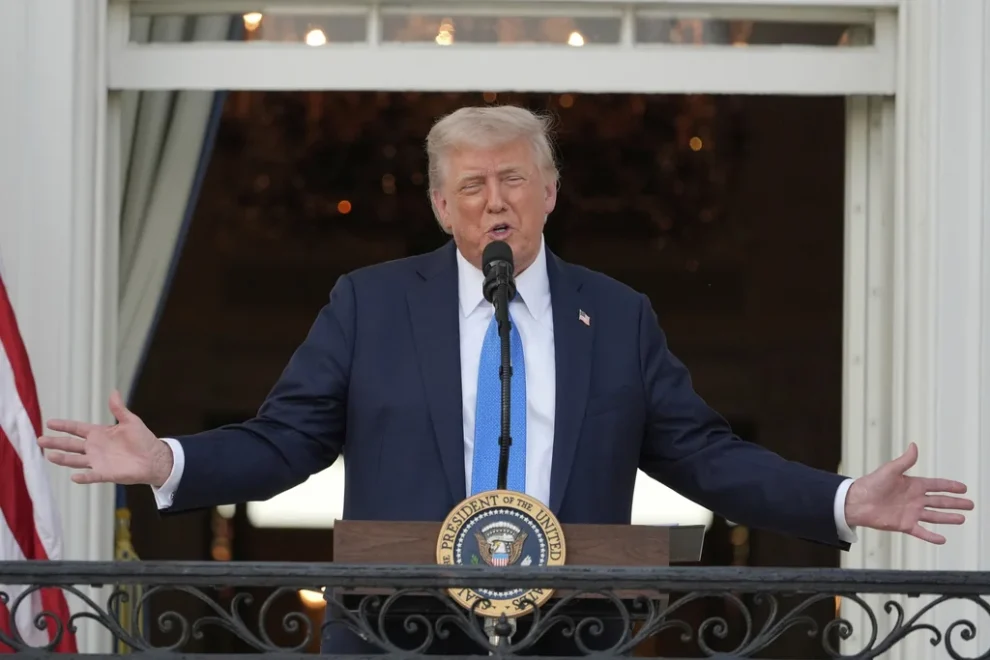President Donald Trump signed three presidential orders Wednesday evening restricting international travel, targeting foreign students at Harvard, and scrutinizing concerns that his predecessor in the White House concealed his cognitive decline and unlawfully delegated presidential powers to subordinates.
Typically an unusually accessible president, Trump’s interactions with the press have been scant in recent days as the White House deals with the fallout from fiscal hawks stemming from former presidential advisor Elon Musk’s sweeping criticism of the president’s signature “big, beautiful” tax bill.
However, on Wednesday evening, Trump captured attention in another direction as he signed three executive orders in a manner reminiscent of the flurry of directives the president issued during the first days of his second term.
Trump introduces travel ban 2.0
The travel ban executive order places restrictions on people from 19 countries from making their way to the U.S. due to national security concerns.
The order takes effect Monday, June 9. It stems from a Jan. 20 executive order Trump issued directing federal agencies to strengthen vetting processes to protect U.S. citizens “from aliens who intend to commit terrorist attacks, threaten our national security, espouse hateful ideology, or otherwise exploit the immigration laws for malevolent purposes.”
Travel to the U.S. will be fully restricted from twelve countries: Afghanistan, Myanmar, Chad, the Republic of the Congo, Equatorial Guinea, Eritrea, Haiti, Iran, Libya, Somalia, Sudan, and Yemen.
Travel will be partially restricted from an additional seven countries: Burundi, Cuba, Laos, Sierra Leone, Togo, Turkmenistan, and Venezuela.
There is a detailed list of exemptions from the travel restrictions. People holding a variety of visas are still allowed to come to the U.S., including diplomatic visas, transit visas, NATO visas, immediate family immigrant visas, and Afghan Special Immigrant Visas. Iranians fleeing persecution because they are part of a religious minority, are also exempt from the travel ban. The restrictions do not apply to U.S. citizens, permanent residents, or anyone with dual citizenship who is traveling abroad from those countries back to the U.S.
“As President, I must act to protect the national security and national interest of the United States and its people,” Trump said. “I remain committed to engaging with those countries willing to cooperate to improve information-sharing and identity-management procedures, and to address both terrorism-related and public-safety risks. Nationals of some countries also pose significant risks of overstaying their visas in the United States, which increases burdens on immigration and law enforcement components of the United States, and often exacerbates other risks related to national security and public safety.”
Trump blocks foreign students from Harvard
The president additionally banned international students from coming to the U.S. to study at Harvard University.
The executive order came as the latest twist in a monthslong feud between the White House and Harvard over whether the Ivy League institution is doing enough to combat intense antisemitism on campus. The Trump administration urged Harvard to carry out a list of federal recommendations to target ethnic hate, including reforming its enrollment process. Harvard characterized the sweeping demands, and subsequent moves by Trump to pull federal funding due to the university’s refusal to fully comply, as unconstitutional.
Trump flexed his presidential muscles to ban foreign students from going to Harvard after a federal judge blocked the Department of Homeland Security last week from doing so.
DHS argued the restrictions are necessary to clamp down on antisemitic foreign students and people tied to the Chinese Communist Party.
“Harvard’s leadership has created an unsafe campus environment by permitting anti-American, pro-terrorist agitators to harass and physically assault individuals, including many Jewish students,” DHS said “Many of these agitators are foreign students,” it continued. “Harvard’s leadership further facilitated, and engaged in coordinated activity with the CCP, including hosting and training members of a CCP paramilitary group complicit in the Uyghur genocide.”
The president also complained that countries whose students attend Harvard contribute next to nothing financially toward their education.
Harvard President Alan Garber has expressed concern that the federal government’s actions against the university violate free speech rights.
He has characterized the Trump administration’s “unlawful” actions as efforts “to retaliate against Harvard for our refusal to surrender our academic independence and to submit to the federal government’s illegal assertion of control over our curriculum, our faculty, and our student body.”
“It imperils the futures of thousands of students and scholars across Harvard and serves as a warning to countless others at colleges and universities throughout the country who have come to America to pursue their education and fulfill their dreams,” Garber said in a statement last month.
Trump orders investigation into Biden’s decline
In a third executive order, Trump ordered an inquiry into former President Joe Biden‘s administration amid worries that his predecessor and his aides covered up his cognitive decline.
Trump’s concerns have centered in part around accusations that Biden allowed unknown allies to use his presidential autopen to sign off on critical policy matters as he declined into dementia.
The investigation is to uncover whether “certain individuals conspired to deceive the public about Biden’s mental state and unconstitutionally exercise the authorities and responsibilities of the President,” according to Trump’s memorandum.
The president’s action comes after the recent release of Original Sin, a book by Jake Tapper and Alex Thompson, which focuses on Biden’s apparent descent into dementia over the past few years. The book, which the authors said relies on more than 200 interviews with close associates and Democratic colleagues, accused Biden’s inner circle of being involved in a systematic cover-up to conceal Biden’s decline from the public eye and shield him from scrutiny in a bid to keep his campaign for reelection alive last year.
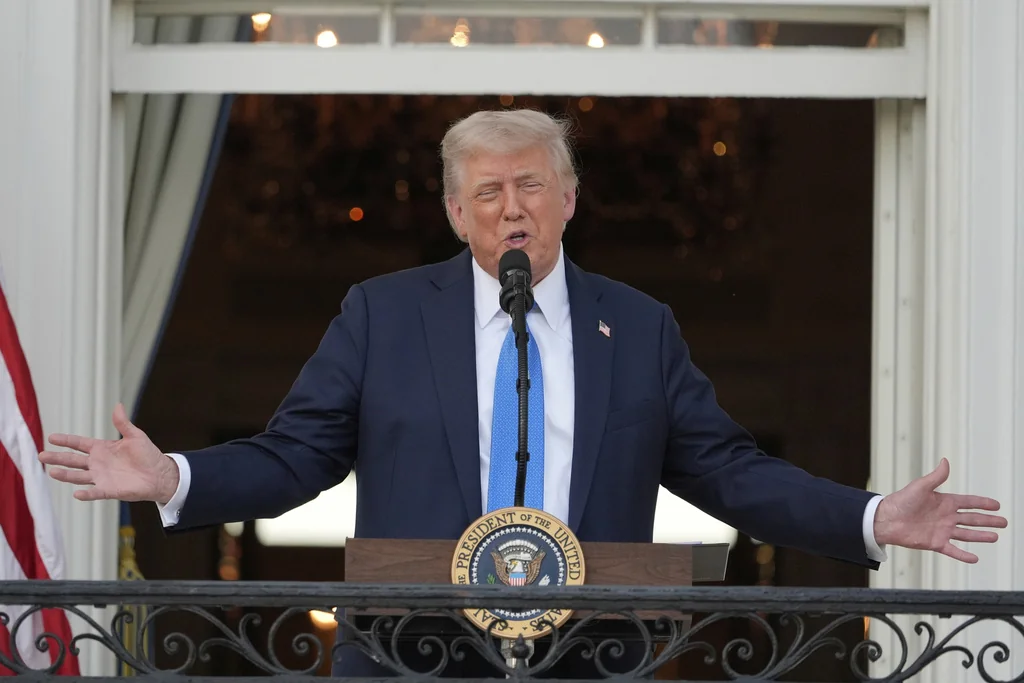
JAMES COMER HEARS TESTIMONY ON HOW BIDEN AIDES CARRIED OUT ‘IMPERSONATION OF THE PRESIDENT’
While Biden’s struggles have been apparent for years, the book sparked new investigations from Republican lawmakers and federal agencies suspicious that the former president may have been delegating presidential powers to associates during his time in office.
The Justice Department recently launched an investigation into Biden’s acts of clemency amid allegations that many were signed with an autopen. And the House Oversight Committee is also investigating Biden’s health and use of an autopen during his time in the White House.

